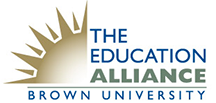How to Take Lecture Notes Effectively: Strategies for Success
Taking effective notes during lectures is a skill that benefits students and professionals alike. Whether you're a college student aiming to capture critical points for study or a professional attending an important seminar, the ability to distill and record key information is invaluable. This article will explore strategies to enhance your note-taking, ensuring you leave every lecture with a clear and useful set of notes.
Choose Your Tools Wisely
Before diving into the content of a lecture, it's essential to select the tools that work best for you. Some prefer the traditional pen and paper method, enjoying the tactile sensation and the psychological benefits of writing by hand. Others opt for digital methods, using laptops or tablets, which can be faster and offer various software to organize notes efficiently. Whichever method you choose, ensure it's one that will not distract you from the lecture itself.
Prepare Before the Lecture
Effective note-taking begins before entering the lecture hall. Review the syllabus, previous notes, or assigned readings to have a foundational understanding of the topic. This pre-class preparation allows you to anticipate key themes and concepts, enabling you to capture notes with greater context and understanding while you 'write my papers' and work on other tasks.
Adopt a Note-Taking Method
Several structured methods can help maximize your note-taking efforts:
- The Outline Method: This technique involves writing main topics, subtopics, and details in a hierarchy, often using bullet points or numbers.
- The Cornell Method: Developed at Cornell University, it divides the paper into three sections: cues, notes, and summary, to organize information efficiently and review it later effectively.
- The Mapping Method: This visual approach uses diagrams to represent relationships between topics, making it ideal for more visual learners.
Experiment with different methods to find one that complements your learning style and the subject matter of the lecture.
Be an Active Listener
Active listening is crucial for effective note-taking. It involves fully concentrating on what is being said, understanding the information, and thinking critically about how it fits into the broader topic. Pay attention to cues from the lecturer, like changes in tone or repeated phrases, which often indicate important concepts that should be noted.
Focus on Key Points, Not Transcription
A common mistake is trying to write down everything the lecturer says. Instead, focus on capturing the essence of the material:
- Look out for signposts such as "there are three main points" or "the most important thing to remember."
- Use shorthand symbols and abbreviations to increase speed and efficiency.
- Write down keywords, phrases, and concepts rather than full sentences.
This selective approach ensures you're engaging with the content rather than merely transcribing it.
Use Your Own Words
Paraphrasing the information in your own words can enhance understanding and retention. It forces you to process the information more deeply and makes reviewing your notes more beneficial as they are tailored to your way of thinking.
Review and Revise Post-Lecture
Shortly after the lecture, take time to review and organize your notes while the information is still fresh. Fill in any gaps, clarify any shorthand that might be unclear later, and highlight or underline key points for emphasis. This step solidifies your understanding and prepares your notes for more effective studying in the future.
Stay Organized
Keeping notes organized is essential for long-term success. Date and title each lecture, and use a consistent format or method. If you're using digital tools, take advantage of folders, tags, and search features to keep your notes easily accessible for future reference.
Practice and Refine Your Approach
Like any skill, note-taking improves with practice. Reflect on what works and what doesn't, and don't be afraid to try new techniques or adjust your method as needed. Over time, you'll develop a personalized note-taking strategy that maximizes your learning and information retention.
In conclusion, effective note-taking is a dynamic skill that adapts to the material, your personal learning style, and the context in which the notes are taken. By choosing the right tools, preparing, listening actively, and engaging critically with the lecture content, you can transform your note-taking into a powerful ally in your educational and professional journey. Remember to review and organize your notes promptly, and always be open to refining your techniques to ensure your notes serve you as well as they can.
Developing effective note-taking strategies is an investment in your educational career and beyond, laying the groundwork for a lifetime of learning and success.
Our Partnerships












